Education: Teachers
Leah Bergstein
Leah Bergstein was the first of the choreographers in Palestine who, at the beginning of the 1930s, created festival dances at kibbutzim that depicted life in pre-state Israel and on agricultural settlements. The unique festival pageants she created, often with poet-composer Mattityahu Shelem, contributed to the development of rural Israeli festivals and holiday celebrations and the creation of the first Israeli dances.

Libbie Suchoff Berkson
Libbie Suchoff Berkson was beloved by generations of campers as Aunt Libbie, director of Camp Modin for girls. She helped to establish the Jewish summer camp and ran it for decades, even while living in Israel and working on several other projects, such as a kindergarten and a teahouse.
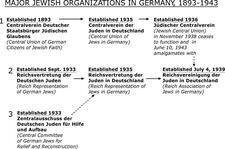
Cora Berliner
Cora Berliner was an economist and social scientist who held leadership positions in several major Jewish organizations in Germany between 1910 and 1942. These organizations included the Association of Jewish Youth Organizations in Germany, the Reich Representation of German Jews, and the League of Jewish Women.
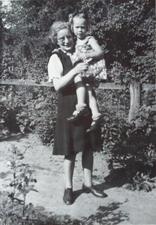
Clementine Bern-Zernik
A lawyer by training, Vienna-born Clementine Bern-Zernik produced broadcasts for the US Office of War Information in London during the war, served as the director of a Displaced Persons Camp in post-war Germany, and spent the last 50 years of her life as a UN liaison to the New York Public Library. Throughout her life she maintained a strong Austrian identity and was a founding member of the Austrian-American Federation.
Jessie Bernard
Sociologist Jessie Bernard’s feminist epiphany came at age 67 in 1969, but her earlier work anticipated feminist theory by discussing the differences between men’s and women’s experiences and arguing that quantitative studies did not accurately represent women’s stories.
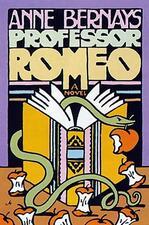
Anne Fleischman Bernays
Anne Fleischman Bernays is an American editor, novelist, and nonfiction writer. Her literary work is notable for its exploration of Jewish experiences of America, the pressure of assimilation, and the then-taboo subject of sexual harassment.
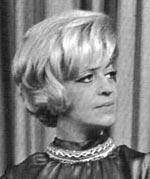
Yara Bernette
Raised in Brazil, world-renowned pianist Yara Bernette began studying piano with her uncle, a major Brazilian classical musician of his day. She toured across the world and became the head of the piano program at the Hamburg Music and Performing Arts School.
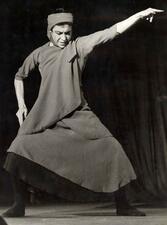
Deborah Bertonoff
From her debut at age nine through her performances in her late seventies and teaching into her late eighties, Deborah Bertonoff made dance her life’s work. Bertonoff began studying at the Bolshoi School before moving to Israel and joining the Habimah Theater. After studying dance in Europe she began choreographing, and in 1944 she founded a dance studio. She was honored with the 1991 Israel Prize.
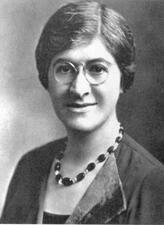
Adele Bildersee
A feminist before her time, Adele Bildersee was an advocate for women in education. She graduated with the first class of the then all-women’s Hunter College in 1903 and went on to help found Brooklyn College, serving as both its dean of students and its director of admissions.
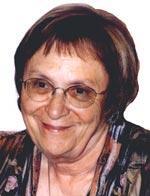
Yehudith Birk
In 1977, biochemist Yehudith Birk became the first woman to serve as a dean at the Hebrew University. An internationally renowned scientist for her studies of legume seed proteins and proteinase inhibitors, she won the 1998 Israel Prize for agricultural research.
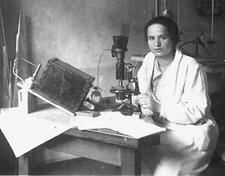
Marietta Blau
German physicist Marietta Blau joined the Institut für Radiumforschung, where she developed an emulsion technique for recording the tracks of particles that allowed her to detect neutrons and observe nuclear disintegration caused by cosmic rays. Forced to emigrate in 1938, worked for the US Atomic Energy Commission and later taught at the University of Miami. Throughout her career, she faced discrimination for her religion and gender and was denied paid work.
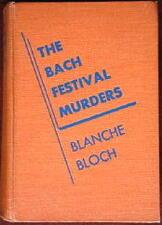
Blanche Bloch
Blanche Bloch helped open new opportunities for women in music as both a founding member and conductor of the New York Women’s Orchestra. Bloch collaborated with her husband, Alexander Bloch, performing, writing operettas, and delivering joint concerts and music lectures. Bloch also authored two mystery novels.
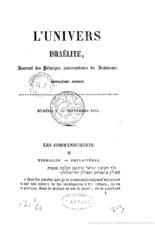
Julienne Bloch
Julienne Bloch was a writer and educator who used her career to strengthen the Jewish community in nineteenth-century France by pushing back against the assimilation and secularization of her fellow French Jews, especially Jewish women.
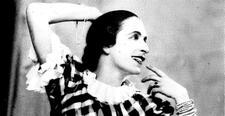
Gertrud Bodenwieser
A member of the first generation of modern dancers in Vienna, Gertrud Bodenwieser developed her own style of modern Ausdruckstanz (expressionist dance). From her studio in Vienna, she established the Bodenwieser Dance Group and went on to tour Europe, Japan, and Columbia. In 1938, she immigrated to Australia and played a significant role in the development of modern dance there.
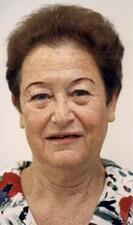
Batsheva Bonne-Tamir
Batsheva Bonne-Tamir (1932-2020) was one of the first human population geneticists in Israel. She is mostly known for her studies on genetic markers and genetic diseases among the Samaritans.
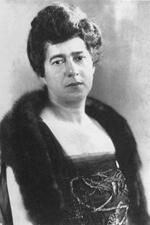
Rose Brenner
As president of the National Council of Jewish Women, Rose Brenner focused on inclusion of people who were often marginalized—the deaf, the blind, and those isolated in rural areas.
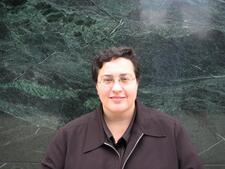
Marla Brettschneider
Varvara Alexandrovna Brilliant-Lerman
Varvara Brilliant-Lerman was a well-known plant physiologist in Russia, whose main works were devoted to the physiology of photosynthesis. She took advantage of the increased ability of women to have careers in science due to the Bolshevik revolution in 1917, teaching at several institutions in Russia. Brilliant continued teaching and researching until her death in 1954.
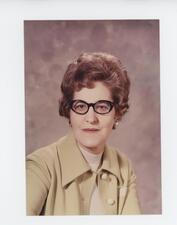
May Brodbeck
May Brodbeck, whose career in the sciences ran the gamut from teaching high school chemistry to exploring fundamental philosophical questions about the nature of human consciousness, was among the foremost American-born philosophers of science.
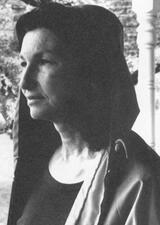
Esther M. Broner
A novelist, playwright, and ritualist, Esther M. Broner emerged on the literary scene in the early 1970s as a leading feminist writer. Her novels feature bitter, fearless, and funny characters. In other works, Broner has combined autobiography with feminist critique of Jewish tradition and created new rituals, such as her 1976 “Women’s Haggadah.”
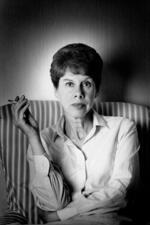
Anita Brookner
Anita Brookner was a British Jewish novelist and accomplished art historian known for her elegaic, gloomy novels depicting the bleak and disappointed lives of women. Receiving the Booker Prize in 1984 for Hotel du Lac, Brookner achieved international fame and recognition as one of the most accomplished writers of English fiction in the later twentieth century.
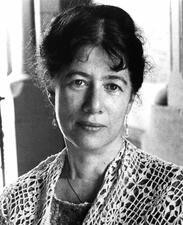
Rosellen Brown
In her fiction, Rosellen Brown confronted themes of alienation, responsibility for others, and racial tension in America. Brown is known for the passion and insight she brings to the page as a poet, essayist, and fiction writer.
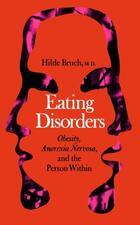
Hilde Bruch
Hilde Bruch’s seminal work on eating disorders contributed significantly to understanding and treatment of the diseases in the 1970s.
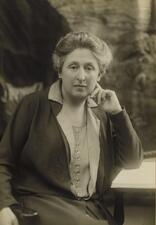
Cécile Brunschvicg
Cécile Brunschvicg was one of the grandes dames of French feminism during the first half of the twentieth century. Although her chief demand was women’s suffrage, she also focused on a range of practical reforms, including greater parity in women’s salaries, expanded educational opportunities for women, and the drive to reform the French civil code, which treated married women as if they were minors.
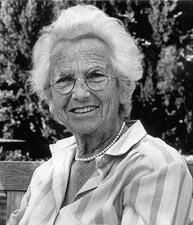
Edith Bülbring
German-born scientist Edith Bülbring was renowned for her work in smooth muscle physiology, which paved the way for contemporary cellular investigations. She pursued this work through a large and flourishing large research group at Oxford University, which she led for seventeen years. In 1958 she was elected to the Royal Society.


